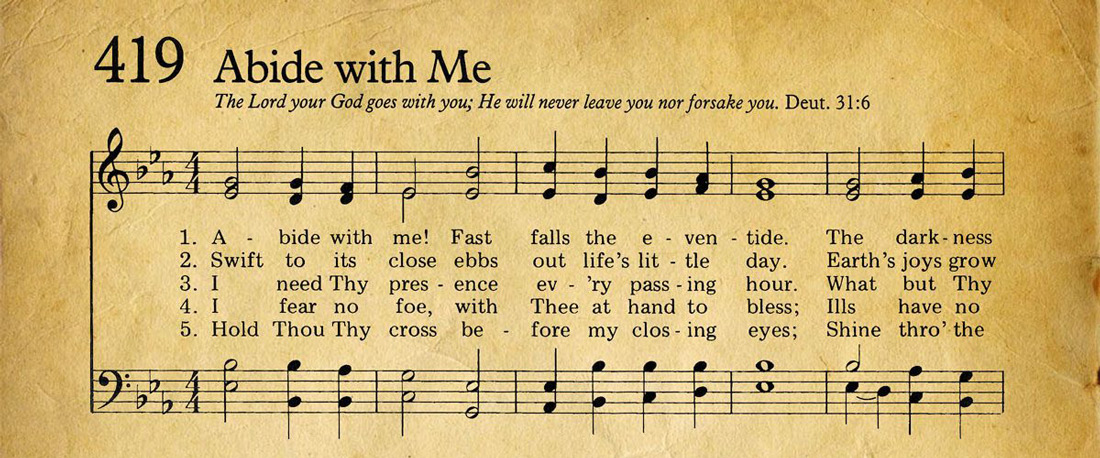
.png) Julian S Das
Julian S Das

Even as the nation celebrated a subdued Republic Day this year, thanks to the third wave of Covid-19 and its variant avatars, one is constantly reminded of one of the many promises made by Prime Minister Narendra Modi, ‘achche din aayega’ (good times are in the offing), and we still hope against hope for such good time, though the air is thick with ominous signs of bad times ahead for her citizens.
The present dispensation in New Delhi seems to have penchant for nothing, but controversies. Stoking political and state-centre fire seems to be one of the virulent tactics of the government, which is known for pushing its way through, thanks to the majority it enjoys in the Parliament, and therefore it cares too little for the Opposition, which is growing weak day after day. Caught in the whirlwind of political rivalry and the angst to survive the inclement weather, the main Opposition party has neither a voice nor a stand left to fight a formidable battle with the unformidable party in power.
Even as the polls in five states are nearing, the political climate is becoming all the more uncertain; jumping over the fence has become a daily reality, with either MLAs or new entrants moving over to other camps, like bees hovering over where honey is.
The nation has learnt a good lesson over the past years, ever since Narendra Modi and his Bhartiya Janata Party (BJP) came to reign the second consecutive term; majority in the Parliament is not the guarantee for good governance, leave alone winning the confidence of the opposition parties in order to build the nation.
But the recent controversies plaguing the present government indicate that the leaders at the Centre are clueless as to how to steer the nation through the political quark-mire they had allowed it to. There is growing discontent due to the hasty and unilateral decisions of the government which are indicative of the bad times ahead for the nation.
Adhering to Augmented Reality
One of the best gifts of technology today is the augmented reality (AR), which seems to have great blessings in store in a wide-variety of fields, including education, medicare facilities, entertainment, innovation in technology and catering to the needs of the differently abled. Mark Zuckerberg had ushered in Meta, which depends on AR, to give to the users a reality which is not real and yet close to reality.
In fact, the present government seems to be interested in sidestepping the nagging social problems and evils the nation is grappling with and create a parallel reality which would make people forget their pains and privations, transporting them to a world of make belief.
There had been much talk about Netaji Subhash Chandra Bose, on the occasion of his birth day on January 23, a holiday in West Bengal, and the Chief Minister of the state appealing to the Prime Minister to declare the day as a national holiday. There had not been any response to the appeal of Mamata Banerjee about this from the Prime Minister’s office.
But Netaji Subhash Chandra Bose had been in the news on several occasions in the past weeks: the refusal of the Ministry of Defence to the tableau of West Bengal on the 125th birth anniversary the national leader, the erection of a 22-foot tall statue of Netaji at India Gate (the Prime Minister inaugurating a hologram of Netaji’s statue on his birthday), and the Indian government hosting dinner to the daughter of Netaji in Germany.
The Centre seems to be too keen on cashing on Netaji on his 125th birth day in order to appeal to the conscience of the nation (and especially to the people of West Bengal, who seem to have too little regard for the waywardness of the Centre) to show that it knows how to pay tribute to the leader whose contribution to freedom movement cannot be underestimated. Modi and Shah would like to take exclusive credit for the fanfare around Netaji and would not allow the same credit to go to West Bengal or the state’s Chief Minister Mamata Banerjee.
But Banerjee too would not let go this opportunity to gain some political mileage out of the tableau on Netaji, and therefore she had decided to have the same on Red Road, the customary route of the Republic Day processions in the City of Joy, and that would in some way placate the shame that had been inflicted on her and her state, as in the case of Kerala and Tamil Nadu tableau.
Aborted ‘Abide with me’
One wonders if the Central Government and its leaders have much regard for Mahatma Gandhi, the father of the nation. There had been allegations that the saffron party had always sided with the killer than the killed, and therefore would not mind water down the great legacy inherited as our greatest treasure, the Gandhian ideals. One of the important aspects of the Gandhian vision is inclusiveness, looking beyond the tip of one’s nose, and therefore ‘Abide with me’ seemed to have been one of his favourite hymns, and this year Modi-Shah government had decided to abort the hymn at the Beating Retreat.
There had been agents and paid social network experts, who are working round-the-clock to justify such a mindless decision of the government in order to ‘Indianize’ the ritual which marks the end of the Republic Day celebrations. Therefore, a Hindi popular patriotic song has been proposed as replacement for ‘Abide with me’, which carried memories hard to spell out or articulate.
Generally, it is understood that what had been the favourite of the Father of the nation would also be the favourite of the present national leaders, who honour the tall leader by displaying his picture in all government offices, so that he may inspire them as they carry out the important task of dispensing justice, equality and democracy. But the BJP seems to have decided to undo what had been a tradition for so many years, and throw cold water on a hymn so dear to Gandhi.
There have been ardent defenders of the government’s move (those news channels who have the patronage of the saffron brigade for their business and survival), who said that there had always been attempts to modernize the tunes played as part of Beating Retreat, and as example shown how the United States army had included a tune from a recent science fiction film Matrix in its ceremony. If that is the intention of the government, then they should include the latest craze from Allu Arjun’s Pushpa : The Rise, with Rashmika Mandanna and Allu Arjun’s sensational tune, ‘Samy, Samy’.
But there is a saving grace in the midst of the controversy; many former civil servants and political leaders have criticised the government for its insensitivity towards what is precious to the nation: there is a move to invite the people to play the tune of ‘Abide with me’ at homes, when the Indian army plays the new Hindi tune, ‘Ae mere waton ko logon’, and there are several versions of the same tune of Henry Francis Lyte in the YouTube.
Selective, Belated National Honours
On January 26, 2022, Republic Day, the Ministry of Home Affairs had released the list of recipients of 128 Padma awards for the year, with four Padma Vibhushan, 17 Padma Bhushan and 107 Padma Shri awards, to be conferred by the President of India in March or April. In its press release, the Ministry had stated that the awardees included 34 women, 10 persons from the category of Foreigners/NRI/PIO/OCI and 13 posthumous awardees.
Looking at the list of awardees, one gets the impression that some of the persons awarded the highest civilian awards are wrought with controversies, and those who are or have been said to be very close to the saffron brigade, or the top national leaders, reigning supreme. The list appears to be squeaked, not providing a fair representation to all the states and Union Territories.
No wonder, even as the list has come to light, there are refusals from some of the eminent leaders, who perhaps had felt humiliated at the insensitivity of the government, coming to honour them so late. The former Chief Minister of West Bengal and last CPI (M) leader from the state, Buddhadeb Bhattacharya has refused the Padma Bhushan conferred on him by the government, in keeping with the official policy of the party to refuse all such state honours. Legendary singer from West Bengal, Sandhya Mukherjee, 90, too refused the Padma Shri award, which she said came too late. And similarly, tabla-maestro Pandit Anindya Chatterjee too had considered the Padma Shri award conferred on him came too late in life, and for such a veteran musician this award was humiliating.
Many feel that conferring Padma Vibhushan on former Uttar Pradesh Chief Minister Kalyan Singh, under whose tenure Babri Masjid was demolished, is seen as a preparation in view of the forthcoming Assembly polls in Uttar Pradesh, and the beginning of the construction of Ram Mandir in Ayodhya.
Is it not strange that out of the four topmost Padma awards, Padma Vibhushan, two of them are conferred on individuals from Uttar Pradesh, and one from Uttarakhand? Is it a mere coincidence, or does the list say something more than a merit list? Or just take a count of the Padma award recipients from Uttar Pradesh alone, the number is sure to tell us the mind of the selection committee, under the watchful care of the Home Minister.
There is a tinge of politics in everything that is taking place around – starting from the arrest of a nun in Tamil Nadu for the suicide of a hostel girl, or the refusal of renewal of Foreign Contribution Regulation Act (FCRA) registration to receive foreign aid, or the freebies political parties are promising in the poll-bound states. In all that the Prime Minister and the Home Minister are engaged in, in the name of national welfare schemes, one can trace gain to them personally or to their party, strengthening its ideology – hegemony of one race, one culture, one religion, and decimating all those with impure blood.
What the Bard of Avon had said in Hamlet, in Marcellus to his philosopher companion Horatio – “Something is rotten in the state of Denmark”, seems to capture the spirit in India today – something stinking. But who will clear the rotten and usher in a healthy environment in the country? It may be too late if we wait for the elected members of the legislative Assemblies and of the Parliament to take seriously the pathetic situation the nation is heading towards, and bring an end to the malaise the nation is suffering from.
Every Independence Day and Republic Day should be an occasion for the citizens, you and I, to take our role as nation-builders seriously and do our part to the best of our ability to make the nation proud of us, not merely by conferring awards, but by assuring safety and security, peace and prosperity to all her citizens.